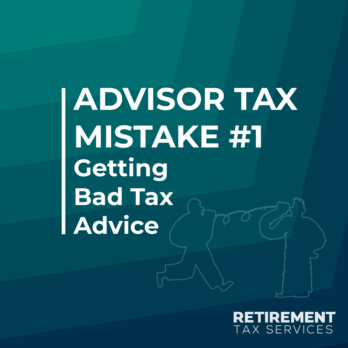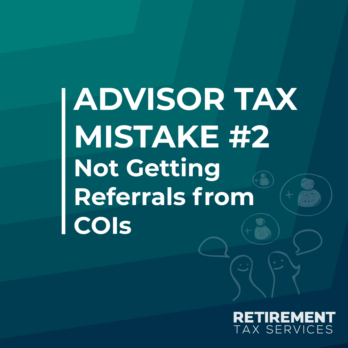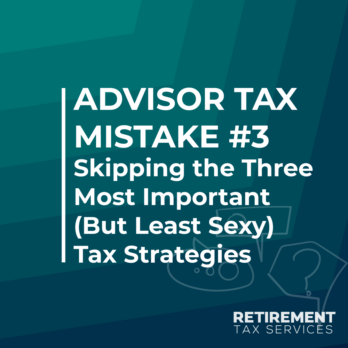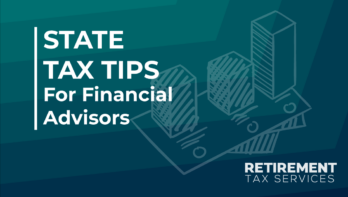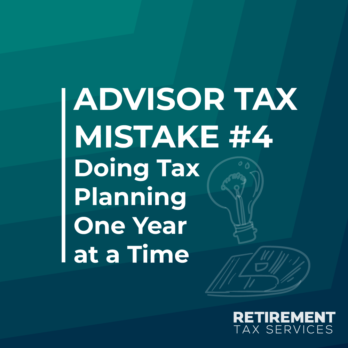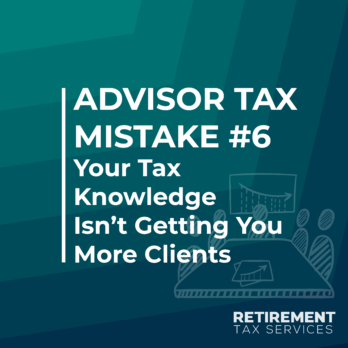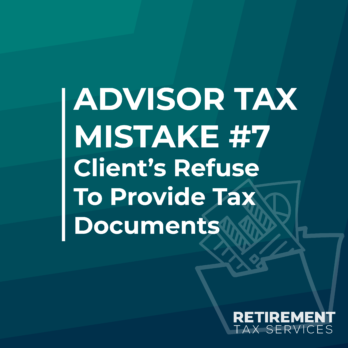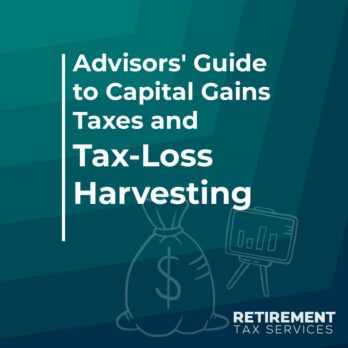Advisor Tax Mistake #1-Getting Bad Tax Advice
When I last Googled “IRS RMD Table,” the first result that popped up was a link to an active IRS web page with the outdated RMD information. Millions of people who clicked on the first link provided by Google were given, by the IRS, incorrect information. Countless other examples of incorrect tax information, ranging from capital gains rates to Medicare premiums to gifting limits and especially the math on Roth conversions can be found prominently displayed across the internet, including on some of the most reputable websites.
CONTINUE READINGAdvisor Tax Mistake #2-Not Getting Referrals from COIs
“I send tons of clients to my local CPA, but she never sends me a single client back!” As an advocate of advisors working closely with tax preparers, and as a tax preparer myself, I hear the complaint of unreciprocated referrals all the time from financial advisors.
CONTINUE READINGAdvisor Tax Mistake #3 – Skipping the Three Most Important (But Least Sexy) Tax Strategies
When it comes to financial advisors and tax strategies, they often sound like old fishermen telling the story of “the one that got away,” except the stories are about ultra-obscure tax strategies that they have never used. This tendency to tell stories about the tax strategies that got away is so prolific that anytime an advisor approaches me about a tax scenario, I immediately ask for the name of the client to ensure we are talking about real life versus tax fantasyland.
CONTINUE READINGState Tax Tips for Financial Advisors
When Congress changes federal tax law, it always dominates the headlines, but the IRS' portion of a taxpayer’s income is only part of the story. Every state has their own unique set of tax rules, and it is not enough for financial advisors to be versed in the rules of their home state. Eight states have no individual income tax. For the other states, there are 42 different sets of rules on what type of income is taxed, how it is taxed, at what rate it is taxed and whether where you work or where you live is more important. Then one could wade into local taxes, with nearly 5,000 jurisdictions in 17 states imposing a local income tax, which can treat nonresidents differently than residents.
CONTINUE READINGAdvisor Tax Mistake #4 – Doing Tax Planning One Year at a Time
This article is the 4th in a series of the 7 most common mistakes financial advisors make on tax planning with clients
CONTINUE READINGAdvisor Tax Mistake #5 – Your Tax Planning is Making Your Client’s Life Harder
This article is the 3rd in a series of the 7 most common mistakes financial advisors make on tax planning with clients
CONTINUE READINGAdvisor Tax Mistake #6 – Your tax knowledge isn’t getting you more clients
This article is the 2nd in a series of the 7 most common mistakes financial advisors make on tax planning with clients
CONTINUE READINGAdvisor Tax Mistake #7 – Client’s refuse to provide tax documents
This article is the 1st in a series of the 7 most common mistakes financial advisors make on tax planning with clients
CONTINUE READINGAdvisors’ Guide to Capital Gains Taxes and Tax-Loss Harvesting
Unlike income from working a job or operating a business, which is subject to tax as it is earned, capital gains and losses are unique in that taxpayers can choose when to recognize a taxable transaction.
CONTINUE READING